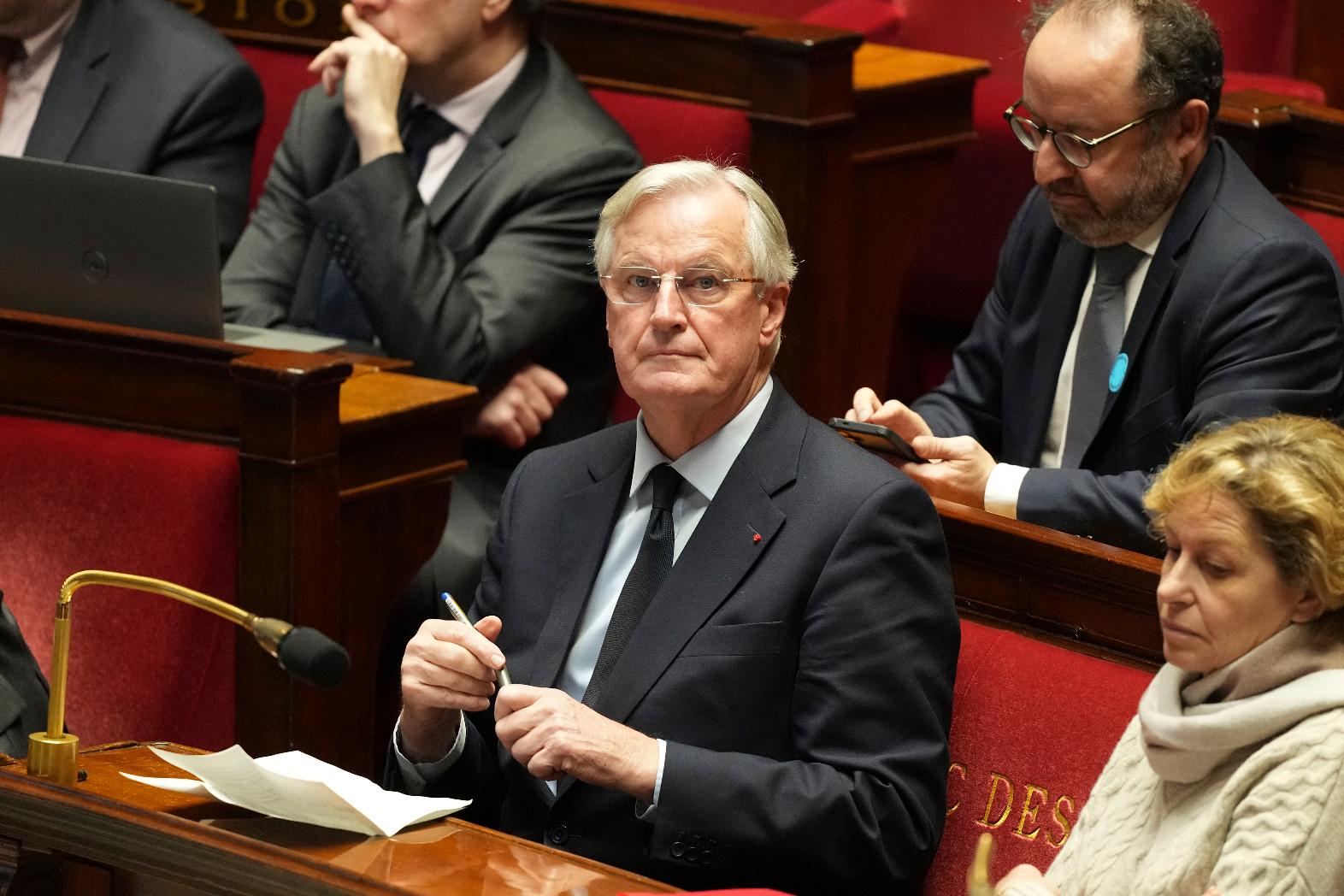French Prime Minister Michel Barnier is bracing for a vote of no confidence this week, a political conundrum that could topple his fragile government and roil the eurozone.
Barnier on Monday invoked a rarely used constitutional mechanism to pass the controversial 2025 budget without parliamentary approval, arguing it was necessary to maintain “stability” amid deep political divisions.
The move sparked an immediate fierce reaction, with Marine Le Pen’s far-right National Rally and the left-wing New Popular Front both filing no-confidence motions in response, setting up a vote on Wednesday in which Barnier could be removed.
The looming confrontation plays out against the backdrop of a fractured National Assembly that has been thrown into disarray after failing to secure a clear majority in June’s snap elections.
President Emmanuel Macron turned to Barnier in September to break the deadlock and address France’s growing deficit. Yet Barnier’s proposed austerity budget – a 40 billion euro ($42 billion) cut in spending and a 20 billion euro hike in taxes – has only deepened divisions, raising tensions in the lower house and leading to this dramatic political confrontation.
The use of a constitutional tool called Article 49.3 allows the government to pass legislation without a parliamentary vote, but leaves it open to no-confidence motions. Opposition leaders argue that Barnier’s concessions, including scrapping an electricity tax hike, are not enough to address their concerns. Le Pen accused Barnier of ignoring his party’s demands.
“Everyone must shoulder their responsibilities,” she said.
The political impasse has destabilized financial markets, with borrowing costs rising sharply amid fears of prolonged instability. Barnier warned of “serious turmoil” if the budget is not passed, but critics described his comments as fear-mongering.
If the no-confidence motion succeeds, Macron will remain president but will have to appoint a new prime minister to pass legislation in a fractured assembly. The uncertainty threatens to worsen France’s economic troubles and could also have ripple effects across the eurozone.
